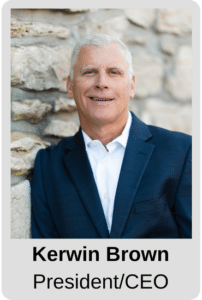26 Mar CEO Insights: What Does It Mean To Be A Leader?

It’s March, and the funny thing about March is that everyone is a college basketball fan in March. People who don’t know the difference between a jump shot and a technical foul are suddenly filling out brackets and acting like they’re personal friends with the leading scorer on their favorite team.
But you know what my favorite thing about watching all these basketball games is? It’s watching the coaches interact with their players. Watching how they motivate and mentor these young men and women in the biggest moments of their lives to this point.
Most of us are never going to be asked to hit a half-court shot with no time left on the clock to win the most important game of our lives, but we all, at some point in our lives, need what these young men and women have – a coach, a mentor, someone to guide us through the big (and small) moments in our careers. Someone who cares enough to help us get to where we want to go, who will teach us the things that they have learned, so that we can go out there and make a difference.
Recently, two of my mentors, Robert Benton and Fred Springer, were inducted into the Baking Hall of Fame, and their willingness to freely share their industry and leadership knowledge played a big part in their election for that honor. Just like the coaches in the NCAA basketball tournaments, Robert and Fred (or The Fred as some call him) exhibited all the qualities of great leaders and mentors, so I thought it would be worth taking a few minutes to share what I have learned about leadership from them.
![]()
Make time for people
Great leaders and mentors make time for people no matter how busy they are. They see investing in others as simply the right thing to do. Robert Benton was a pro at this.
For decades, BEMA held a meeting called Winter Summit just before ASB’s BakingTech. We coined it the “Best Week in Baking,” and it was always around the last week in February, at the Downtown Chicago Marriott in almost always cold Chicago.
In the lobby of the Marriott, where many of the old-timers will remember gathering, Robert and Beth Benton, my Shick boss, Rob Merrill, and I would play Spades. Robert Benton was one of the most influential equipment buyers in the industry, but he made time for those games with me, a newly appointed marketing coordinator, and always treated me like I was worthy of his time.
Robert’s hall of fame acceptance speech talked about family and teams, and through his speech, you could see Robert felt that treating people like they are important and worth investing in was important. As a leader, Robert has always wanted to look beneath the surface, and it was clear when he spoke of his time in the industry, as well as when others spoke of him, that he always prioritized deepening his knowledge of the products, people and projects in his sphere of influence.
![]()
Remain humble
When you’re the leader of a successful basketball program or a successful company, it can be easy to lose your humility. You’ve done something that not many other people have done. It’s an accomplishment, and it’s easy to get caught up in your success.
But the most successful leaders and mentors are people who remain humble and remember all the help they got along the way. Fred Springer is one of those people.
Before I ever visited Fred and the Burford crew in Maysville, Oklahoma, I thought Burford was one of the larger companies in the industry, and Fred was a big reason for its success. After I took on my current role with BEMA, I visited Burford and found the factory was modest in size, significantly incongruent with my impression.
Burford’s reputation as the ruler of all suites during the Best Week in Baking, their large booth size at shows, their advertising budget, their leadership positions throughout the industry all led me to believe the facility would have the same mammoth footprint.
But the success of Burford wasn’t the size of the facility. Its success came from “The Fred”.
Fred is a humble, often quiet leader, a fierce competitor who has had a huge impact and influence in the industry. Fred’s ability to focus beyond himself and his company, to imagine the possibilities that could become realities, provided a tremendous vision that transformed the industry.
“The Fred’s” leadership legacy is one of humility, and Fred is part of countless other blossoming leadership stories currently being written in our industry.
Now, as March draws to a close, our national obsession with college basketball will soon go dormant for another year, but the impact coaches have made on their players will last the rest of those players’ lives just as Robert and Fred’s impact will continue to be felt throughout the next generations of baking industry leaders. Great coaches and mentors know that investing in others matters more than the numbers on the scoreboard or the dollars on a spreadsheet.
Let’s take a minute to learn from people like Robert and Fred. Take stock of the people in your circle of influence. Who can you invest in? Where can your knowledge and influence make a difference for young people in the industry today?
You may not be able to teach them how to hit a game-winning three-pointer, but you can help them learn to be the next Robert Benton or Fred Springer.





Trina J Bediako
Posted at 10:11h, 28 MarchThank you for sharing! Your insights hold true!